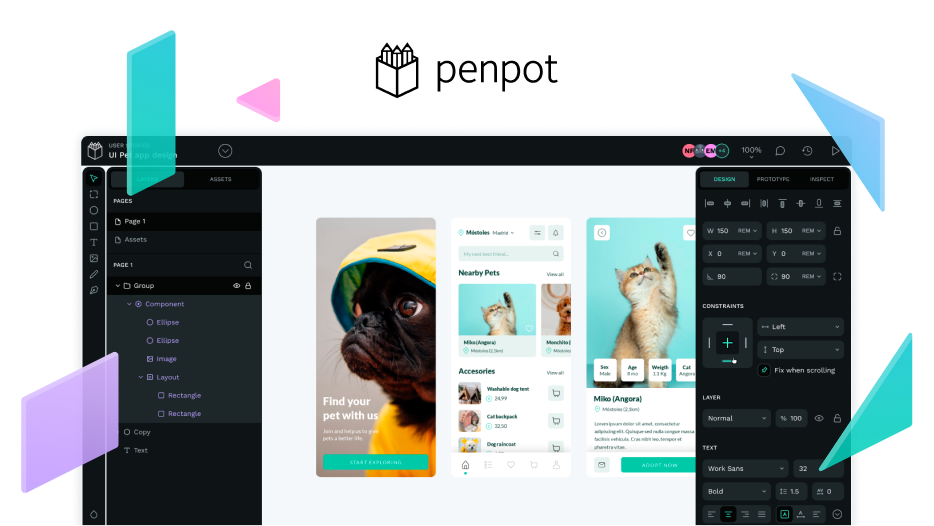Hi all,
We are starting a new chapter at Penpot, and we want you to be part of it, as always. As we explore innovative paths to sustain and grow our platform, your insights, and contributions are priceless. We know that making a platform like Penpot requires many great people with good ideas and a clear plan.
Because of that, we plan to launch a first iteration with a business model by 2025 Q1. However, we already want to start this conversation with our community. Your feedback will play a vital role in refining this approach, ensuring it aligns with the needs and aspirations of our diverse community.
Why Does Your Voice Matters?
Penpot is not just a tool; it’s a community-driven project that thrives on collaboration and open dialogue. Your experiences, ideas, and critiques are valuable to us, helping shape Penpot into a platform that truly reflects the needs of its community. Whether you’re a designer, developer, project manager, or open-source enthusiast, your perspective is key to our collective success.
If you would like to understand our path until here, check this post:
But what are our ideas for this future model now?
We are considering an innovative approach to sustainably scale Penpot while staying true to our open-source roots without resorting to an open-core business model.
This model aims to provide for free the complete Penpot experience as an open source product for all users (from casual to power). At the same time, organizations that require more control and customization of their Penpot experience will be ones contributing financially through a paid offer. In other words, there won’t be user-facing features behind a paywall.
Other simpler and well-known paid levels could offer limits based on some simple metric, such as storage for our public Software as a Service (SaaS) at penpot.app or provide separate certified builds for self-hosting that are particularly enterprise-friendly.
We encourage all to join the conversation right here in our community space. However, if you are a part of an organization that could benefit from this model and would be interested in knowing more about this, please write to us on support@penpot.app.
